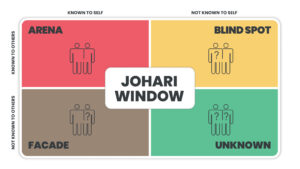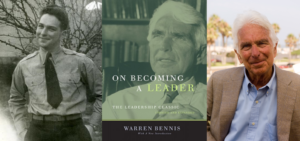A brilliant but troubled young man from a tough neighborhood in south Boston is working as a janitor at an elite technical university. Despite his incredible potential, he plans to stick around with his childhood buddies and not use his gifts. His therapist comes from the same neighborhood and is fascinated by the smug young prodigy.
Sound familiar? It’s the plot of the acclaimed film, “Good Will Hunting,” of course, starring Matt Damon, Robin Williams, Ben Affleck, and Minnie Driver. And it’s also a case study in root causes.
In their first session, Will shocked his therapist, Dr. Sean Maguire, played by Robin Williams, with cutting observations about him based on his painting on the wall. When they met a few days later at the park, Sean told Will that, while he’s brilliant, he’s just a kid. Though he knows an astonishing amount of facts and figures, he really doesn’t know what he’s talking about. Will hasn’t traveled outside of Boston. He hasn’t yet experienced the things of the world that bring you deep wisdom, or real love with a partner.
Sean sees that, though Will has incredible intellectual abilities feeding his crass self-assurance, he’s really just lost and afraid. Sean asks him:
“You think I know the first thing about how hard your life has been, how you feel, who you are, because I read Oliver Twist? Does that encapsulate you? Personally… I don’t give a shit about all that, because you know what, I can’t learn anything from you, I can’t read in some f*ckin’ book. Unless you want to talk about you, who you are. Then I’m fascinated. I’m in. But you don’t want to do that do you sport? You’re terrified of what you might say.”
Will, perhaps for the first time in his life, had the tables turned on him. Later, in an emotional exchange in Sean’s office, they trade stories of their violent fathers. Will recently broke up with his girlfriend and suspects that Sean will give him some textbook theories about attachment disorder or fear of abandonment.
But Sean does something surprising. He drops Will’s psych file on the desk and says, “It’s not your fault.”
Will says he knows that. But Sean keeps repeating it, over and over. Until it finally cracks Will’s heart open and the pain comes streaming through—and healing.
They’d finally gotten to the root of it.
What Are You Struggling With?
Think about whether there are any recurring patterns or challenges in your life. (If so, welcome to the human race. You’re not alone.) Common ones include feeling stuck in your career and struggling with things like money, body image, self-doubt, or toxic relationships.
Have you, like Sean and Will, gotten to the root of it?
When you’re passed over for a promotion, your first response might be to blame your ungrateful manager. Upon further reflection, though, you might realize that you’re deflecting responsibility. Without understanding and addressing the root cause, you’re stuck spinning unhelpful stories and playing the victim.
Are your financial woes really about your stingy boss or your mindset, habits, and choices?
Are your health problems really about your stressful job or about your numbing of deeper issues?
Difficult issues, for sure, but how long will they go on if you’re not addressing them at the right level?
When your yard has weeds, do you mow over them, or do you get down in the dirt and grab them by the root?
You may notice that many of the traps of living—the things that inhibit our happiness and quality of life—come with common root causes. Examples:
- Having a victim mentality often stems from difficult experiences or trauma, leading you to feel powerless and believe that other people or outside circumstances dictate the terms of your life.
- Blaming often originates in fear of vulnerability or failure. You may have learned to deflect responsibility as a coping mechanism to protect your self-image or avoid the irritation of accountability.
- People-pleasing often stems from a desire for approval and acceptance, perhaps caused by early experiences of conditional love or approval. Maybe you internalized the message that your worth depends on meeting others’ expectations.
- Workaholism can come from a need for achievement, perhaps driven by difficult or embarrassing situations early in life. Parental, peer, or societal pressures that equate success with achievement can fuel it. Your excessive work may be a means to gain control or validation.
9 Tips to Help You Discover Root Causes
Here are nine things you can do when engaging in root cause analysis:
1. Use the “five whys” questioning technique to get beyond surface-level symptoms and drill down to root causes. When you encounter a problem, ask “Why?” five times. That inquiry can help take you down to the underlying issue. (See the “Practice” section below for more on this.)
2. Recognize that, while it may be tempting to externalize the problem and shift the blame, the root cause is often internal. Keep your focus on how and why things have happened instead of on who’s causing you difficulty. That way, you’ll focus on things you can control and avoid going down the rabbit holes of blaming and victimhood. Consider whether the root cause has to do with your mindset, beliefs, choices, attitudes, or habits.
3. Think about several challenges you’ve experienced and see if there’s a pattern. Sometimes, by looking at a series of things, you can trace them back to a common denominator. For example, it could be a fear of looking bad or of failing.
4. Challenge your limiting beliefs. Identify your limiting beliefs and then dig deeper into the assumptions behind them and consider where they come from. For example, if you believe you’re damaged goods, a failure, or not worthy of love, think about whether you somehow got the message that you need to act a certain way or achieve at a certain level to be a good person.
5. Note that while getting to the root cause is ideal, sometimes you may need immediate relief. In some cases, it’s helpful to address acute problems to give yourself more running room.
6. Note that there may be multiple root causes. Sometimes, there’s a confluence of factors causing you pain. If you’re experiencing anxiety, for example, it may stem from life events, personality traits, peer pressure, cultural influences, childhood upbringing and parenting approaches, genetic factors, and/or brain chemistry imbalances.
7. Don’t do this alone. Seek help from trusted friends and colleagues, a small, supportive group, or a therapist. That will help you identify blind spots, bring in fresh perspectives, and challenge your assumptions.
8. Look for ways to prevent the root causes from coming up in the future. For example, getting to the bottom of why you feel stuck in your career can help you identify key issues, such as a lack of clear and compelling career goals, insufficient skill development, and fear of change. Perhaps your lack of clarity stems from not taking the time to reflect on your core values, strengths, passions, and aspirations. And maybe your lack of skill development stems from complacency or an overfull schedule.
9. Also look for the root causes of your victories and successes, not just your defeats and failures. Doing so can help you continue having good results and also port those approaches to other areas of your life.
Conclusion
Engaging in root cause analysis is vital to success and wellbeing. By understanding the underlying factors that contribute to your struggles, you can implement targeted approaches to address them, leading to better outcomes. This proactive approach can enhance your self-awareness and your personal and professional growth. By committing to this reflective process, you can finally unshackle yourself from the things that have been holding you back.
Reflection Questions
- Do you have recurring problems or challenges that are holding you back?
- Have you identified their root causes?
- What more will you do, starting today?
Tools for You
- Traps Test (Common Traps of Living) to help you identify what’s getting in the way of your happiness and quality of life
- Quality of Life Assessment to help you discover your strongest areas and the areas that need work and then act accordingly
- Leadership Derailers Assessment to help you identify what’s inhibiting your leadership effectiveness
Postscript: Inspirations on Root Causes
- “When solving problems, dig at the roots instead of just hacking at the leaves.” -Anthony J. D’Angelo, author
- “Negative thinking is subtle and deceptive. It wears many faces and hides behind the mask of excuses. It is important to strip away the mask and discover the real, root emotion.” -Robert H. Schuller, pastor
- “We lack emotional connection even when we are surrounded by other people. This feeling of being profoundly alone is the root cause of unhappiness in the human race. It is the root cause of addictions. It is the root cause of suicide. It is the root cause of acts of terror. And it is the root of the dysfunction in the way society is structured.” -Teal Swan, author
Practice: Using “Five Whys” to Identify the Root Cause
In the 1930s, Japanese inventor and industrialist Sakichi Toyoda developed a questioning technique known as the “five whys” method to improve manufacturing processes as part of the Toyota Production System. With this now-famous and widely used method, workers ask why at least five times when they encounter a problem, helping them discover and address the root cause of the problem instead of addressing surface-level symptoms.
Here’s how it works: When you encounter a problem, ask why it’s occurring, and then answer that. Then ask why again, and answer that. And so on, five times.
The idea is to encourage people to go deep enough and not stop too soon. But in reality, five isn’t a magic number, and the deeper why questioning process can end with any number of whys. But five is a good proxy for going deep.
Here’s an example:
- Why does Alicia feel stuck in her career? Because she hasn’t taken on any new responsibilities lately.
- Why? Because her current workload feels overwhelming.
- Why? Because she spends a lot of time people-pleasing and managing tasks that could be delegated.
- Why? Because she worries that her team members might not complete them to her standards.
- Why? Because she has perfectionistic tendencies and control issues.
Another example:
- Why isn’t our new product selling well? Because customers aren’t making repeat purchases.
- Why? Because they’re dissatisfied with the product’s performance.
- Why? Because it doesn’t meet their expectations set by our marketing claims.
- Why? Because they overhyped the product and didn’t do sufficient testing before launch.
- Why? Because there was pressure to launch too quickly due to the upcoming board meeting.
Appendix: Examples of Getting to the Root Causes of Things
Example: Missing Motivation. Marcus is unhappy with his job. His motivation disappeared years ago. Lately, he finds himself procrastinating and missing deadlines, which never used to happen. It’s leading to guilt and stress. Unbeknownst to him, what’s really going on beneath it all is that Marcus resents feeling undervalued. Two years ago, he was coldly overlooked for a well-deserved promotion and felt humiliated. Today, he’s filled with frustration and self-doubt—and thinking about resigning.
Example: Careening Career. Maria has been in the same work role for years but feels unfulfilled. And resentful. Despite her years of experience, she avoids seeking new opportunities because she fears she won’t be taken seriously. A previous boss dismissed her ideas callously, causing her to doubt her abilities. Today, she remains stuck in a position that bores her, feeling frustrated and trapped.
Example: Lost Leadership. When Catherine discovers that her team is missing its quarterly sales goals, she implements stricter sales quotas and adds daily check-ins. What she’s missing is that her team lacks confidence when selling because they don’t fully understand the new product’s features and functionality, and they don’t feel comfortable coming to her. Unbeknownst to her, Catherine’s task-driven approach comes across as cold and uncaring.
Example: Rocky Relationship. Cynthia and Thomas have been arguing a lot lately. They’ve been fighting about all sorts of things—the dishes, the kids, the budget, the yard. And things are escalating quickly to shouting storms. They’re frustrated and caught in a cycle of mutual blame. And they’re too busy finding fault with each other to step back and notice that, for a long time, Cynthia has felt unappreciated despite doing more around the house, and Tom feels unsupported in his stressful career.
Example: Nonprofit Nosedive. A nonprofit organization is experiencing a severe drop in participation at its events. In response, they’re ramping up their marketing efforts and changing their event formats. What they’re missing is that many families in the new demographic they’re targeting don’t have access to reliable transportation.
Example: Startup Struggles. An app development startup has a talented and dedicated team, but they’ve been missing important milestones lately—a shock to all. While they continue to blame individuals, the real problem is a lack of defined roles within the team, coupled with poor communication. Without clarity, their efforts are often redundant. Meanwhile, projects fall behind, clients get frustrated, and team members lose their enthusiasm.
+++++++++++++++++
Gregg Vanourek is a writer, teacher, and TEDx speaker on personal development and leadership. He is co-author of three books, including LIFE Entrepreneurs: Ordinary People Creating Extraordinary Lives (a manifesto for living with purpose and passion) and Triple Crown Leadership: Building Excellent, Ethical, and Enduring Organizations (a winner of the International Book Awards). Check out his Best Articles or get his monthly newsletter. If you found value in this article, please forward it to a friend. Every little bit helps!












